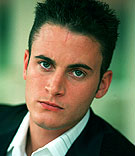For most of the weekend before last (and parts of the week either side) I was in Amsterdam at IBC. IBC is essential an enourmous broadcasting technology conference & exhibition; although its styling itself for the electronic media industry.
How long does it take to recover from a week in Amsterdam? Given it’s now Monday, I will say about five days. Of course, your mileage may vary etc. etc.
For most of the weekend before last (and parts of the week either side) I was in Amsterdam at IBC. IBC is essentially an enormous broadcasting technology conference & exhibition; although its styling itself for the electronic media industry. While the focus appears to me to be technology there is, apparently, a decent representation from the creative side of the industry. It’s been around for years and it’s quite important to many in the broadcast sector. While I’ve known about it for a long time, and have watched colleagues go before, I’ve never been myself. Upon arrival at the conference, prepare yourself: I found the size quite daunting. I suspect extensive, advance planning your visits/meetings etc. is the key to the experience.
Friends often ask me about this kind of event. Is it a trade show, conference, place for old friends to meet/excuse for a drink? Well, I know that this time I probably encountered the lot but I have never been so exhausted after a conference in all my life which is why it’s taken me five days to get the photos up onto Flickr. Although the hotel that they put us up in was very nice, central & restful; there is a lot (an awful lot) of walking. Tip: take a map showing the location of the RAI conference centre and your hotel. Walking between the two may be a trek but it saves waiting for the cabs or trams as the centre closes each day.
The thrilling thing (at least for me) was that it was the culmination of many months of work to have our advertising management tool deliver targeted, addressable advertising to video on demand systems. Microsoft, of course, had a fantastic stand in the Topaz lounge where all sorts of great technologies were being showcased. Check out some of the things Silverlight can do. But for me, the television screens in the corner connecting AdManager to Mediaroom were what it was all about. This meant that I stood, for many hours, watching the same video clips and advertisements (and I still want a pizza despite – or, perhaps because of – seeing a pizza ad several hundred times) but the response from customers, partners & prospects was great. You can read about the Mediaroom Advertising Platform on the official press rele
ase for the event.
I think targeted, addressable advertising is future for advertising; and I don’t think that’s a big announcement at all. Many people in advertising will say they’ve been doing it for years. What’s direct mail advertising, after all? However, in the digital world the key issue will be defining what is meant by targetable or addressable. Many years ago we used ‘targeting’ to describe how we were able place an advertisement on a particular page on a web site. Other areas of the advertising industry have used it describe demographics or audience segments. Isn’t Amazon’s “customers who bought” suggestions a great form of highly targeted promotion? The main problem is that we have no standard, industry definition of what we mean by targeted or addressable. Amazon knows my purchase history – it should be easy to target on that. But what about mobile or television advertising? How to we define what’s targetable. I agree that we still have some research to do in this area.
As an aside, it’s worth recognising that with little effort, many things are targetable, including personal data. But that’s not what I am referring to here. Privacy policies, user information, declared data etc. are all the scope of legislation and deserve a better piece of writing than this. No, I’m suggesting that the industry simply need to standardise what it means targetable advertising as a starting point for us all.
There were plenty of other people demonstrating similar things in this and related fields. It’s interesting to see that the television business is not, contrary to the predictions of You Tube doom, standing still. If IBC is anything to go by there’s a whole heap of innovation for those of us who watch television which could dramatically change our experiences. I’m looking forward to seeing which make it to the mainstream.
Apart from watching television advertising all day, Amsterdam was a fun place to be. It being my birthday in the middle of it all there was a desert with a sparkling candle in it, presented to me a great steak restaurant, whose name I have lost and, therefore, can’t recommend. Thanks to all my UK colleagues for that. After we had packed away, there was a canal tour to pass an hour or two before heading to the airport, arranged by some of my US colleagues (some of whom had not visited Amsterdam before). Â There was even a bar showing American football and a late night team of my US friends trying to explain the rules to me. I’m not certain I mastered them, I’m afraid. Sadly, there wasn’t enough time to catch up with my old friends from my days in the radio distribution business. Hopefully, another year.
It was an exhausting week but a great glimpse of where we are taking the technology.
Disclaimer: the views here are my own and are not necessarily the opinions of my employer (who sent me) nor customers (who I spoke to while there). You have read the full disclosure, haven’t you?
Update: 29 September: Added some links to related commentary at Connected TV.
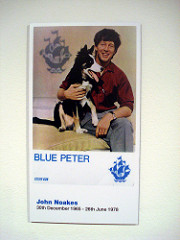
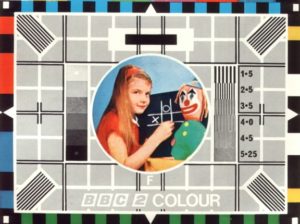

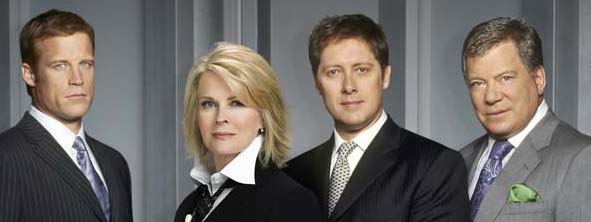

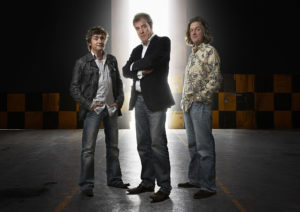 Occasionally you are required to browse the information super-highway for things related to work. And, more often than not, on that journey you get side tracked by something in the way. A little like driving to Abergavenny and being stuck behind a caravan for most of the time on the A40. Which is interesting as I suspect that caravan owners are the biggest group of people to complain to the BBC about Top Gear. And it is the fact that, according to Ofcom, Top Gear is the 20th most complained about show on TV that stopped me in my tracks today. The BBC has – apparently – been forced to make a statement, “We acknowledge some viewers do not appreciate the Top Gear team’s sense of humour but their provocative comments are an integral part of the programme and are not intended to be taken seriously,” [
Occasionally you are required to browse the information super-highway for things related to work. And, more often than not, on that journey you get side tracked by something in the way. A little like driving to Abergavenny and being stuck behind a caravan for most of the time on the A40. Which is interesting as I suspect that caravan owners are the biggest group of people to complain to the BBC about Top Gear. And it is the fact that, according to Ofcom, Top Gear is the 20th most complained about show on TV that stopped me in my tracks today. The BBC has – apparently – been forced to make a statement, “We acknowledge some viewers do not appreciate the Top Gear team’s sense of humour but their provocative comments are an integral part of the programme and are not intended to be taken seriously,” [
